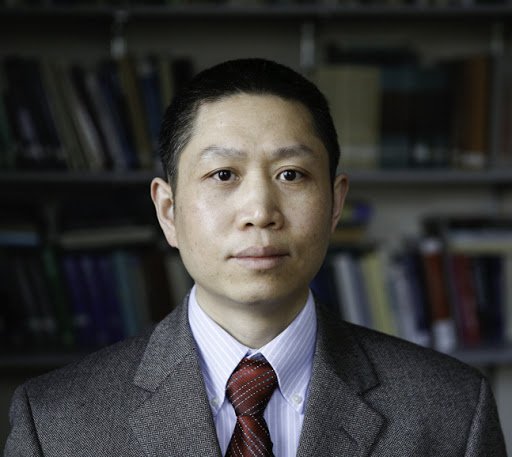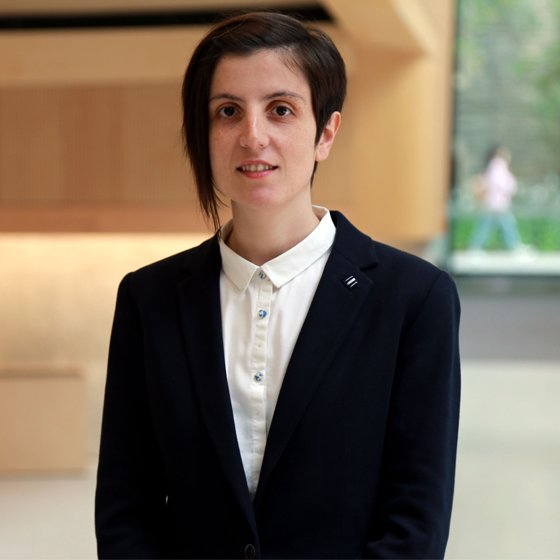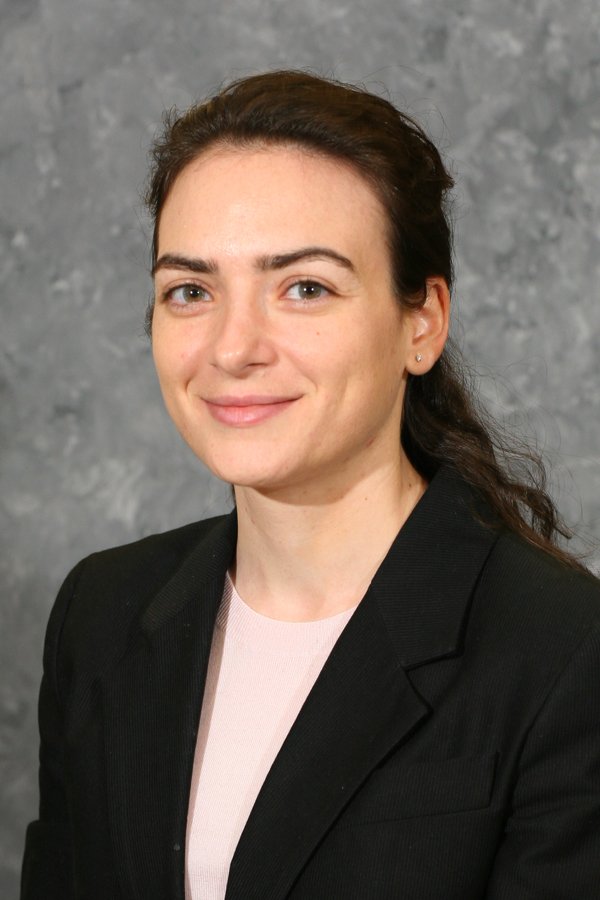Events
Upcoming Events
There are no upcoming events matching your criteria.
Previous Events
ISyE Seminar Series: Hui Zou
Wednesday, March 10, 2021, 3:30 p.m. through Wednesday, March 10, 2021, 5 p.m.
Zoom
|
 "Sparse Composite Quantile Regression in Ultrahigh Dimensions"Presentation by Professor Hui Zou Wednesday, March 10 |
|
About the seminar: When estimating coefficients in a linear model, the (sparse) composite quantile regression was first proposed in Zou and Yuan (2008) as an efficient alternative to the (sparse) least squares to handle arbitrary error distribution. The highly nonsmooth nature of the composite loss in the sparse composite quantile regression makes its theoretical analysis as well as numerical computation much more challenging than the least squares method. The theory in Zou and Yuan (2008) was proven under fixed-dimension asymptotics and the estimator was computed via linear programming that does not scale well with high dimensions. In this paper, we study the sparse composite quantile regression under ultrahigh dimensionality and make three contributions. First, we provide a non-asymptotic analysis of both the lasso and the folded concave penalized composite quantile regression, which reveals a practical way of achieving the oracle estimator. Second, we construct a novel information criterion for selecting the regularization parameter in the folded concave penalized composite quantile regression and prove its selection consistency. Third, we exploit the structure of the composite loss and design a specialized optimization algorithm for computing the penalized composite quantile regression via the alternating direction method of multipliers. We conduct extensive simulations to illustrate the theoretical results. Our analysis provides a unified treatment of the concentration inequalities involving the composite loss. Those inequalities could be of independent interest. This is joint work with Yuwen Gu. Reference: Gu, Y. and Zou, H. (2020). IEEE Transactions on Information Theory, 66(11), 7132—7154. https://ieeexplore.ieee.org/abstract/document/9112219
|
|
Bio: Hui Zou is a Professor in school of Statistics at University of Minnesota. He received B.S. in Math and Physics from University of Science and Technology of China, and PhD in Statistics from Stanford University under the supervision of Trevor Hastie. His research interests include high-dimensional statistics, machine learning, and data science in general. He is an elected Fellow of Institute of Mathematical Statistics (2015) and American Statistical Association (2019). He has been Web of Science highly cited researcher since 2014. He received several other awards including NSF career award in 2009, IMS Tweedie award in 2011 and Scholar of the College in 2015. He also received a COGS outstanding faculty award for excellence in teaching in 2013. He has served on the editorial board of Annals of Statistics, Journal of the American Statistical Association, Journal of the Royal Statistical Society, Series B, Journal of Machine Learning Research, and Statistica Sinica. |
Seminar Video
ISyE Seminar Series: Ali Makhdoumi
Wednesday, Feb. 24, 2021, 3:30 p.m. through Wednesday, Feb. 24, 2021, 5 p.m.
Zoom
|
 "Sequence-Submodularity and its Application to Online Advertising"Presentation by Professor Ali Makhdoumi Wednesday, February 24 |
|
About the seminar: Motivated by applications in online advertising, we consider a class of maximization problems where the objective is a function of the sequence of actions as well as the running duration of each action. For these problems, we introduce the concepts of sequence-submodularity and sequence-monotonicity which extend the notions of submodularity and monotonicity from functions defined over sets to functions defined over sequences. We establish that if the objective function is sequence-submodular and sequence-non-decreasing, then there exists a greedy algorithm that achieves 1− 1/e of the optimal solution. Bypassing the Monster: A Faster and Simpler Optimal Algorithm for Contextual Bandits under Realizability (pdf) |
|
Bio:
Ali Makhdoumi is an Assistant Professor of Decision Sciences at Fuqua School of Business, Duke University. Before joining Fuqua in 2018, he has earned his Ph.D. from the Laboratory for Information and Decision Systems (LIDS) at the Massachusetts Institute of Technology. His research interest includes optimization, game theory, and learning theory with applications to social and technological systems. His recent works explore problems in data markets with privacy concerns, online review systems, online advertisement, online streaming platforms, and testing strategies during pandemics. |
Seminar Video:
ISyE Seminar Series: David Simchi-Levi
Wednesday, Feb. 17, 2021, 3:30 p.m. through Wednesday, Feb. 17, 2021, 5 p.m.
Zoom
|
 "Statistical Learning in Operations: The Interplay Between Online and Offline Learning"Presentation by Professor David Simchi-Levi Wednesday, February 17 |
|
About the seminar: Traditionally, statistical learning is focused on either (i) online learning where data is generated online according to some unknown model; or (ii) offline learning where the entire data is available at the beginning of the process. In this talk we show that combining both approaches can accelerate learning. Specifically, we show that difficult online learning problems can be reduced to well-understood offline regression problems. We demonstrate the impact of our work in the context of recommendation systems, multiclass classification problems and dynamic pricing. Bypassing the Monster: A Faster and Simpler Optimal Algorithm for Contextual Bandits under Realizability (pdf) |
|
Bio: David Simchi-Levi is a Professor of Engineering Systems at MIT and serves as the head of the MIT Data Science Lab. He is considered one of the premier thought leaders in supply chain management and business analytics. |
Seminar Video:
ISyE Seminar Series: Lewis Ntaimo
Wednesday, Feb. 3, 2021, 3:30 p.m. through Wednesday, Feb. 3, 2021, 5 p.m.
Zoom
|
 "Expected Conditional Risk Measures for Risk-Averse Multistage Stochastic Programs"Presentation by Professor Lewis Ntaimo Wednesday, February 3 |
|
About the seminar: Risk-averse multistage stochastic programming (MSSP) provides a framework for modeling sequential decision-making problems involving uncertainty and risk. It offers the advantage of enabling optimal decisionmaking in the face of unforeseen future outcomes. However, despite having many real-world applications, riskaverse MSSP problems are very challenging to solve due to their large-scale nature and the incorporation of risk measures into the formulation. Therefore, this calls for novel decomposition methods to tackle these problems. In this talk, we introduce the expected conditional risk measure (ECRM) for both deviation and quantile risk measures. ECRMs are attractive because they are time-consistent, which means that a plan made today will not be changed in the future if the problem is re-solved given a realization of the random variables. We show that solving risk-averse problems based on ECRMs is as complex as solving risk-neutral ones and therefore, amenable to the stochastic dual decomposition (SDDP) method. We illustrate our results with extensive numerical computations for problems from hydrothermal scheduling. The results show that ECRMs provide superior performance over the risk-neutral approach in terms of costs. In particular, the new approach shows higher expected costs in the early stages to hedge against cost spikes in later stages. Presentation slides (pdf) |
|
Bio: Lewis Ntaimo is a Professor, Department Head, and the Sugar and Mike Barnes Department Head Chair of the Wm Michael Barnes ‘64 Department of Industrial and Systems Engineering at Texas A&M University and has been with the university since 2004. He obtained his PhD in Systems and Industrial Engineering in 2004, MS in Mining and Geological Engineering in 2000, and BS in Mining Engineering in 1998, all from the University of Arizona. Dr. Ntaimo’s primary research interest is in deriving models and solution methods for decision-making problems involving uncertainty and risk, systems modeling and process optimization, and computer simulation. Recent applications include patient and resource management in healthcare, wildfire management, air traffic flow management, aircraft assembly line production optimization, energy reduction in data centers, and wind farm operations and maintenance. His research over the years has been funded by the National Science Foundation, Department of Homeland Security, and industry. Dr. Ntaimo is a member of INFORMS and IISE, and he is the Past-President of the INFORMS Minority Issues Forum. He currently serves as associate editor for INFORMS Journal on Computing, IISE Transactions, IISE Transactions on Healthcare Systems Engineering, SN Operations Research Forum, and is on the Editorial Board of the Journal of Global Optimization and Computational Optimization and Applications Journal. |
Seminar Video:
ISyE Seminar Series: Merve Bodur
Wednesday, Jan. 27, 2021, 3:30 p.m. through Wednesday, Jan. 27, 2021, 5 p.m.
Zoom
|
 "Copositive Duality for Discrete Markets and Games"Presentation by Professor Merve Bodur Wednesday, January 27 |
|
About the seminar: Models including binary decisions are often modelled as mixed-integer programs (MIPs). Such models are nonconvex and lack strong duality, which prevents the use of tools such as shadow prices and KKT conditions. For example, in convex markets, shadow (dual) prices are associated with market equilibrium, and for convex games the existence and uniqueness of Nash equilibrium can be proven via fixed-point theorem and KKT conditions. Those results are lacking in their nonconvex counterparts. We use copositive programming to formulate discrete problems in applications including nonconvex energy markets and nonconvex games, to leverage its convexity and strong duality features. We obtain several novel theoretical and numerical results for those applications, including a new revenue-adequate pricing scheme for energy markets, and existence, uniqueness, and KKT conditions for the pure-strategy Nash equilibrium in discrete games. We also propose a novel and purely MIP-based cutting-plane algorithm for mixed-integer copositive programs, and employ it in our applications. (This is a joint work with Cheng Guo and Josh A. Taylor.)
Related work: Copositive Duality for Discrete Markets and Games (pdf) |
|
Bio: Merve Bodur is an Assistant Professor in the Department of Mechanical and Industrial Engineering at the University of Toronto. She also holds a Dean’s Spark Professorship in the Faculty of Applied Science and Engineering. Currently, she is the INFORMS Optimization Society Vice Chair of Integer and Discrete Optimization. She obtained her Ph.D. from University of Wisconsin-Madison and did a postdoc at Georgia Institute of Technology. She received her B.S. in Industrial Engineering and B.A. in Mathematics from Bogazici University, Turkey. Her research interests include stochastic programming, integer programming, multiobjective optimization and combinatorial optimization, with applications in a variety of areas such as scheduling, transportation, power systems, healthcare and telecommunications. |
Seminar Video:
ISyE Seminar Series: Hai Wang
Wednesday, Jan. 20, 2021, 3:30 p.m. through Wednesday, Jan. 20, 2021, 5 p.m.
Zoom
|
 "Ride-Sourcing Systems & Multiple-Objective Online Ride Matching"Presentation by Professor Hai Wang Wednesday, January 20 |
|
About the seminar: We propose a general framework to study the on-demand shared ride-sourcing transportation systems and summarize the relevant research problems in four areas, namely, demand, supply, platform operation, and system problems. We then focus on the problem of online matching in the ride-sourcing systems. The platforms match passengers and drivers in real-time without observing future information, considering multiple objectives such as pick-up time, platform revenue, and service quality. We develop an efficient online matching policy that adaptively balances the trade-offs between multiple objectives in a dynamic setting and provide theoretical performance guarantees for the policy. We prove that the proposed adaptive matching policy can achieve the solution that minimizes the Euclidean distance to any pre-determined multi-objective target. Through numerical experiments and industrial testing using real data from a ride-sourcing platform, we demonstrate that our approach is able to arrive at a delicate balance among multiple objectives and bring value to all the stakeholders in the ride-sourcing ecosystem. Related work: Ridesourcing systems: A framework and review (pdf) |
|
Bio: Dr. Wang is an Assistant Professor in Singapore Management University and a Visiting Assistant Professor at the Heinz College of Information Systems and Public Policy at Carnegie Mellon University. He received a Bachelor’s degree from Tsinghua University and a doctoral degree in operations research from MIT. His research has focused on methodologies of analytics and optimization, data-driven decision-making, and machine learning algorithms, and their applications in the general context of smart cities, including transportation, mobility, and logistics systems. He has published in leading journals such as Transportation Science, Transportation Research Part B, American Economic Review P&P, and M&SOM. He serves as the guest editor for the Special Issue on Innovative Shared Transportation in Transportation Research Part B and Special Issue on Innovation in Transportation-Enabled Urban Services in Service Science, as a reviewer for over 40 academic journals. |
Seminar Video:
ISyE Seminar Series: Jamol Pender
Wednesday, Dec. 9, 2020, 3:30 p.m. through Wednesday, Dec. 9, 2020, 5 p.m.
Zoom
|
 "Queues with Delayed Information"Presentation by Professor Jamol Pender Wednesday, December 9 |
|
About the seminar: Many service systems provide queue length information to customers thereby allowing customers to choose among many options of service. However, queue length information is often delayed and is often not provided in real time. Recent work by many authors explores the impact of these delays in an empirical study in U.S. hospitals and amusement parks. In this talk, we develop a delayed information queueing model and show that it can be approximated by delay differential equations in the fluid regime as a functional law of large numbers limit of a stochastic queueing process. We also derive a closed form expression for determining when oscillations will be generated by delayed information. Our analysis provides new insight on how delayed information can produce unexpected system dynamics. |
|
Bio: Jamol Pender is an Assistant Professor of Operations Research and Information Engineering at Cornell University. He received his Ph.D. from Princeton University in 2013 where he was advised by Dr. William Massey. He joined Cornell University in 2015, and serves as a Faculty Fellow in the Residence Halls at Cornell. Jamol is a recipient of a Ford Foundation Fellowship, the NSF CAREER award, MIF Career Award, and several teaching and advising awards, including the Sonny Yau award for teaching excellence and the Zellman Warhaft Commitment to Diversity Award. Jamol's research focuses on how to disseminate information to customers in queues and how this information affects the underlying dynamics in queues. He is very interested in the interplay between stochastic processes, simulation, and non-linear dynamics. Jamol is heavily involved in the Applied Probability Society of INFORMS, where he served as the INFORMS APS 2019 conference co-chair. |
Seminar Video:
ISyE Seminar Series: Simge Küçükyavuz
Wednesday, Dec. 2, 2020, 3:30 p.m. through Wednesday, Dec. 2, 2020, 5 p.m.
Zoom
|
 "Mixed-Integer Convex Programming for Statistical Learning"Presentation by Professor Simge Küçükyavuz Wednesday, December 2 |
|
About the seminar: In the first part of this talk, we consider the problem of learning an optimal directed acyclic graph (DAG) from continuous observational data. We cast this problem in the form of a mathematical programming model which can naturally incorporate a super-structure in order to reduce the set of candidate DAGs. We use the penalized negative log-likelihood score function with both L0 and L1 regularizations and propose a mixed-integer quadratic program (MIQP), referred to as a layered network (LN) formulation. The LN formulation is a compact model, which enjoys as tight an optimal continuous relaxation value as the stronger but larger formulations under a mild condition. Computational results indicate that the proposed formulation outperforms existing mathematical formulations and scales better than available algorithms that can solve the same problem with only L1 regularization. In particular, the LN formulation clearly outperforms existing methods in terms of computational time needed to find an optimal DAG in the presence of a sparse super-structure. This is joint work with H. Manzour, A. Shojaie, L. Wei and H-H. Wu. Motivated by related statistical learning problems, in the second part of this talk, we study the convexification of a class of convex optimization problems with indicator variables and combinatorial constraints on the indicators. Specifically, we give the convex hull description of the epigraph of the composition of a one-dimensional convex function and an affine function under arbitrary combinatorial constraints. This is joint work with A. Gómez and L. Wei. |
|
Bio: Simge Küçükyavuz is an Associate Professor in the Industrial Engineering and Management Sciences Department at Northwestern University. She is an expert in mixed-integer programming, large-scale optimization, and optimization under uncertainty. Her research has been supported by the National Science Foundation (NSF) and Office of Naval Research. She is the recipient of the 2011 NSF CAREER Award and a co-winner of the 2015 INFORMS Computing Society (ICS) Prize. She is the Chair of ICS and serves on the editorial boards of Mathematics of Operations Research, Mathematical Programming, and Mathematical Programming Computation. |
Seminar Video:
ISyE Seminar Series: Luis Nunes Vicente
Wednesday, Nov. 18, 2020, 3:30 p.m. through Wednesday, Nov. 18, 2020, 5 p.m.
Zoom
|
 "Accuracy and Fairness Trade-offs in Machine Learning: A Stochastic Multi-Objective Approach"Presentation by Professor Luis Nunes Vicente Wednesday, November 18 |
|
About the seminar: In the application of machine learning to real life decision-making systems, e.g., credit scoring and criminal justice, the prediction outcomes might discriminate against people with sensitive attributes, leading to unfairness. The commonly used strategy in fair machine learning is to include fairness as a constraint or a penalization term in the minimization of the prediction loss, which ultimately limits the information given to decision-makers. In this talk, we introduce a new approach to handle fairness by formulating a stochastic multi-objective optimization problem for which the corresponding Pareto fronts uniquely and comprehensively define the accuracy-fairness trade-offs. We have then applied a stochastic approximation-type method to efficiently obtain well-spread and accurate Pareto fronts, and by doing so we can handle training data arriving in a streaming way. |
|
Bio: Luis Nunes Vicente is the Timothy J. Wilmott ’80 Endowed Faculty Professor and Chair of Lehigh University’s Department of Industrial and Systems Engineering (ISE), effective August 1, 2018, after a career as a faculty member in the Department of Mathematics of the University of Coimbra. His research interests include Continuous Optimization, Computational Science and Engineering, and Machine Learning and Data Science. He obtained his PhD from Rice University in 1996, under a Fulbright scholarship, receiving from Rice the Ralph Budd Thesis Award. He was one of the three finalists of the 94-96 A. W. Tucker Prize of the Mathematical Optimization Society (MOS). He has served on numerous editorial boards, including SIAM Journal on Optimization (2009-2017), EURO Journal on Computational Optimization, and Optimization Methods and Software (2010-2018). He was Editor-in-Chief of Portugaliae Mathematica (published by the European Mathematical Society) during 2013-2018. |
Seminar Video:
ISyE Seminar Series: Karla Hillier
Wednesday, Nov. 4, 2020, 3:30 p.m. through Wednesday, Nov. 4, 2020, 5 p.m.
Zoom
|
 "Solving Problems with Analytics and Machine Learning Across Industries"Presentation by Karla Hillier Wednesday, November 4 |
|
About the seminar: Learn how analytics and machine learning have been deployed to advance business goals in industries ranging from retail and hospitality to health care and manufacturing. A wide range of tools and approaches have been deployed in teams with different structures to deliver results in both publicly held and private companies. |
|
Bio: Karla Hillier is Director, Decision Science and Advanced Analytics for the residential HVAC business of Trane Technologies. Her team uses data to help grow our customers. Prior to that, she was Director of Data Science at Optum working on critical health care problems. At Radisson Hotel Group, she managed a team of analysts providing insights to multiple functions. At SUPERVALU, she led the development of a store/item/day level forecast to improve availability. She has an MBA from Georgetown University and a BA from Miami University in Oxford, Ohio. She lives in Minneapolis with her husband Ian, and dog Kona. |